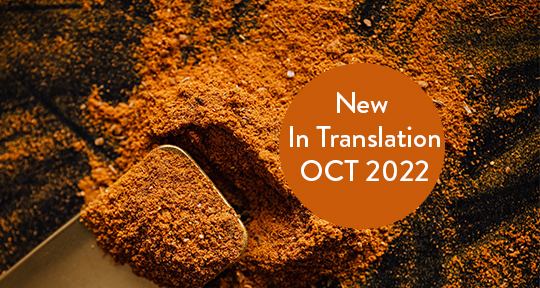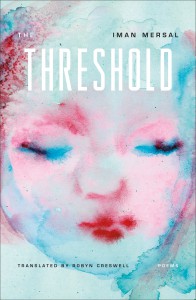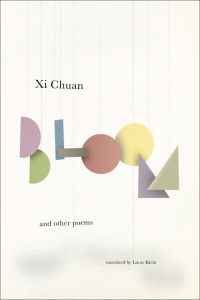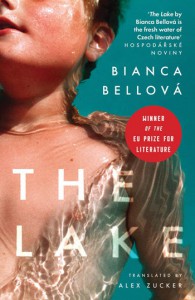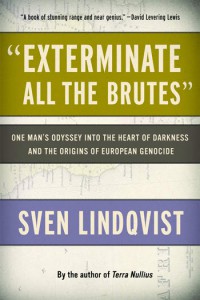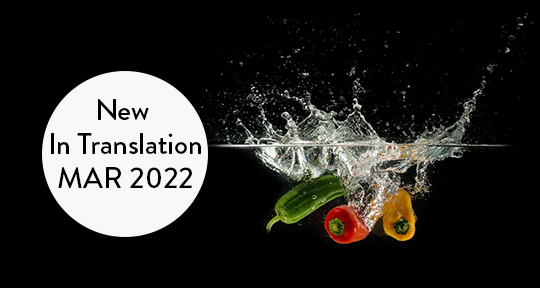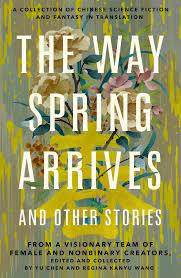There have been many cinematic adaptations of Haruki Murakami’s work, but none as successful as Ryusuke Hamaguchi widely lauded Drive My Car. In a film unafraid of language, Hamaguchi has arguably done more justice to Murakami’s paced, meditative take on simple—albeit unexpected—human relationships and connections than any director before him, and the resulting film captures that most wonderful feeling of communion between two separate works of art—when, as Hamaguchi said, “. . . as I was reading Drive My Car, I suddenly found something that clicked, something that could be done.” In the following edition of Asymptote at the Movies, our editors discuss the film and story in regards to their depictions of storytelling, friendship, and the ways we become real to one another.
David Boyd (DB): Let’s start with how the movie and the story begin. Hamaguchi opens Drive My Car with a scene borrowed from “Scheherazade,” another short story from Murakami’s Men Without Women, in which sex and storytelling are closely linked. Kafuku and Oto are shown in bed, Oto telling her husband a story that he’ll later repeat back to her. The story is pretty much the same as Scheherazade’s: a teenage girl enters the home of her crush, secretly and repeatedly, always taking something of his and leaving something of her own behind. Right away—and this seems important—we’re in a story within a story.
Murakami’s “Drive My Car” follows a very different path. In Ted Goossen’s translation, the story starts: “Based on the many times he had ridden in cars driven by women, Kafuku had reached the conclusion that most female drivers fell into one of two categories: either they were a little too aggressive or a little too timid.” At the outset, we’re entirely in Kafuku’s world, and Oto—or his nameless wife, really—has already died. Kafuku is, from the opening lines, a man without a woman.
Our connection to Kafuku changes dramatically depending on our point of entry: the bed of a married couple, or the mind of a widower with some negative thoughts about women behind the wheel.
Alan Mendoza Sosa (AMS): I was also struck by the dramatic differences between the two beginnings, and I think they have a strong impact on the public’s relationship with the characters. In the movie, we meet Oto in more depth; we become familiar with her and thus are made to feel her death more intensely than in the short story, which doesn’t really allow us to explore Oto’s subjectivity with as much autonomy—since all accounts we get of her are already filtered through Kafuku’s unreliable and misogynistic perception.
The decision to open the movie with a long set-up centered on Oto also directs our attention to the other key women in the film—Janice Chan, Misaki Watari, Kon Yoon-su, and Yuhara, all of whom, with the exception of Misaki, do not make much of an appearance in the short story. In other words, the movie’s emphasis on Oto also accents more strongly the gender relations at the center of this narrative, presenting strong and diverse—yet flawed and human—female characters, with as much psychological and existential complexity as the male ones.

Eva Wissting (EW): In Hamaguchi’s film, Kafuku appears right from the beginning as a loving husband, easy to sympathize with––even more so when we find out about his wife’s affairs. In Murakami’s short story, on the other hand, Kafuku initially comes across as a misogynist old prick, concerned with creating theories about the difference between men’s and women’s driving, all of which are so illogical that he can’t even explain them to himself without referring to a vague “charged atmosphere.” Though he applauds himself for not usually drawing distinctions between genders, his female driver’s beauty (or lack thereof) has to be commented on, both to his mechanic and to the driver herself. It’s not until later in the story, when we learn about Kafuku’s (perhaps unexpected) reaction to his wife’s infidelity, that I find something sympathetic about him. He may be judgmental in his thoughts, but in his actions, he mostly just seems lost. In Hamaguchi’s adaptation, however, Kafuku starts out as a warm and caring character, and as a creative professional, he appears stronger and more confident than his short story counterpart. READ MORE…


